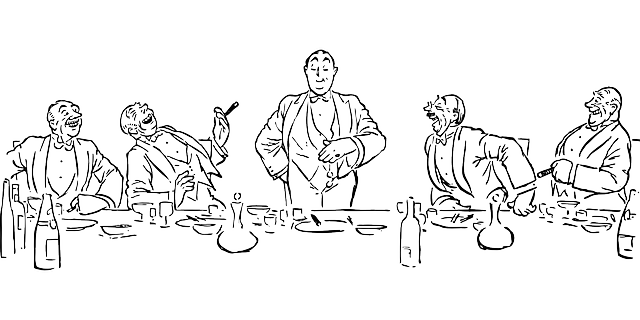Language is a tool that evolved as humans, with their unique cognitive abilities and unparalleled dependency on cooperation, worked over millennia to build small bands of scavengers from the rich African ecosystem into societies held together by culture. Culture itself exists in symbiotic relationship with language, in which knowledge structures, values ranked by relative importance, and social roles are justified, explained, and brought into being largely through language. Language is the most amazing tool in the animal kingdom. American author Tom Wolfe has gone so far as to say that humans have moved beyond the animal kingdom to the “kingdom of speech.”
Yet because language was not simply given to humans by the command of an all-knowing creator, or “first talker,” it has evolved from the days of Homo erectus to this current era of Homo sapiens, as no more nor any less than the only communication system we have. Our languages are associations of sound, meaning, and sequential arrangements that fit local cultural needs, whether those needs are hunting and gathering or agriculture and science. It was built up slowly, giving humans a way of talking about experiences they did not and do not necessarily understand.
Language's evolutionary history means that it deals with perceptions and culturally salient experiences. It does its work in community-building through stories that humans tell each other to explain the often frightening, beautiful, ambiguous biospheres occupied by different societies. These stories sometimes aim for accuracy, but mainly for cohesion among society's members. Making us feel like we know what we are experiencing, whether or not we do in fact understand.
But evolution cannot produce languages that can talk perfectly about either reality or the quasi-religious notion of “Truth” – beliefs and statements that never need to be revised. Our languages at most meet the condition that Herbert Simon called “satisficing” – offering just “good enough” descriptions. And they are often not even “good enough.” The shortcomings of language are seen in relationship breakdowns where couples talk past one another, failing to communicate with their partners even when using the same words.
"It seems absurd to think that we advanced chimps can talk about Truth or possess languages that can."
If human languages cannot even communicate effectively between people who know each other intimately, how can they communicate things like the Platonic logos or Truth? Even Kant realised this when he said that we can never directly apprehend (or talk about) the noumenal world or the “thing-in-itself”. Languages work well enough for technology. And if they fail, then technology fails. But technology is itself only “good enough”. It is not Truth (there is no true way to design an airplane, for example, or designs would eventually all be the same).
There are therefore objects and events that lie “beyond words”. We can never talk accurately about everything. Some religions recognise this when they talk of the deity as beyond human knowing. More mundanely, many poets have talked of love as beyond definition.
Among the Pirahãs of the Brazilian Amazon, where I have spent most of my research career, there are no words for numbers or colors. So one could not accurately even say, “two red apples”. Perhaps a less exotic example is the everyday experience of trying to explain to someone how you feel. Or the attempt to translate expressions of one language into another. Languages package meaning differently, according to their own cultural experiences. So it is not always possible to translate from one language to another. Plato argued, even if unconvincingly in many respects, that the truth lies beyond our experience and so we can only imagine it but never accurately know it. Willard Van Orman Quine, perhaps the most important American philosopher of the 20th century, argued that translations are so fraught with potential error that we are in principle unable to tell exactly how our translations go wrong, much less verify that they are correct. But if language cannot even express observations with sufficient clarity to render translations completely accurate, then they have no chance of fully getting at much more profound notions such as “reality” and “truth”.
We negotiate our journeys through the world in the languages of our communities, the languages of primates that share most of their DNA with chimpanzees. It seems absurd to think that we advanced chimps can talk about Truth or possess languages that can talk about Truth. And the sad history of violence and misunderstanding that is the human story offers ample evidence of out linguistic shortcomings.
Daniel Everett
https://iainews.iai.tv/articles/the-kingdom-of-speech-auid-649?_ga=1.43969952.426039028.1482207971
Daniel Everett is a Dean of Arts and Sciences at Bentley University, anthropologist best-known for multiple decades spent with the Piraha people in the Amazon.

